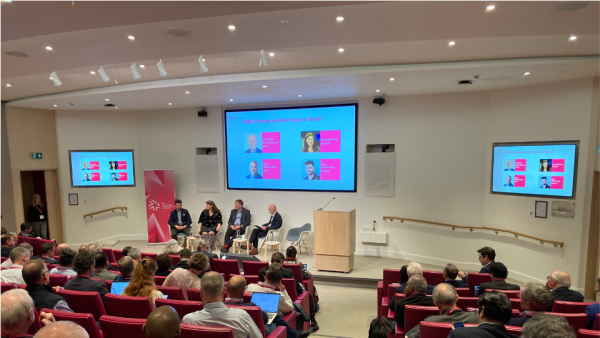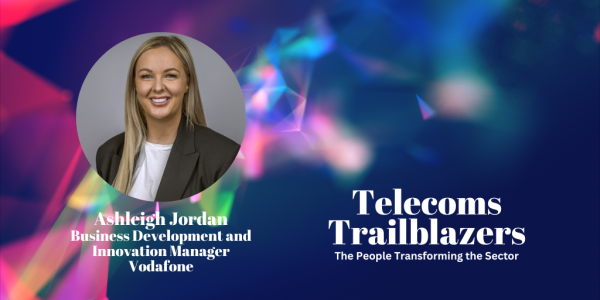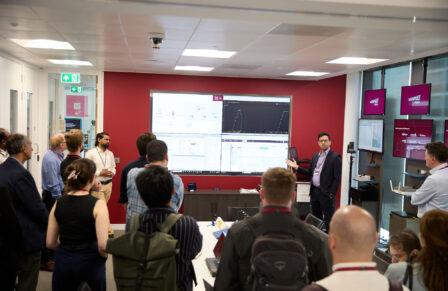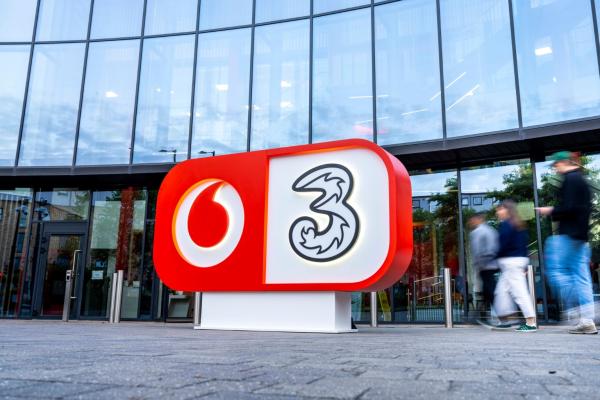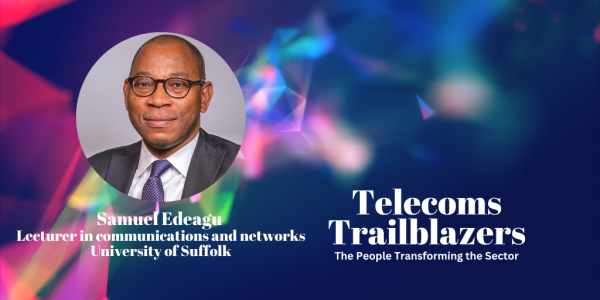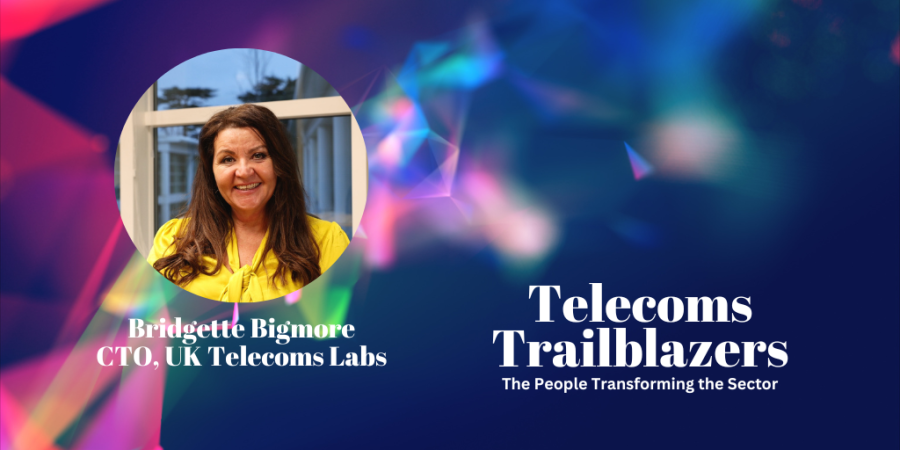
Hello, I’m Bridgette Bigmore, and I am the CTO of the UK Telecoms Labs (UKTL). UKTL delivers security and research and testing to safeguard telecoms networks from cyber threats. We are a government-owned, independent cybersecurity lab providing a secure, neutral environment for testing technologies to ensure the UK's communications infrastructure is safe and robust, and to foster innovation and growth.
I’ve been in this role for just over a year now, and I have a strong industry background, having spent twenty-eight years working for BT, with experience in almost every aspect of telecoms. I love being in the labs; of course, I never feel that I have enough time with the team building the network, but engaging with the wider perspective of security strategy and technology evolution keeps me busy nationally.
I feel so fortunate to work for UKTL for many reasons, not least because it is so unique. Whilst there are many labs across the world, most act on behalf of the government, or they are commercial entities contracted to test. Though funded by DSIT, we are fully independent and autonomous. This position creates a purity around our mission of security, resilience and diversification without any agenda or bias — we are steered equally by the UK’s operators and vendors.
UKTL works with industry, government and academia and the National Cyber Security Centre (NCSC) also informs our work. The strategic telecoms architecture that Ofcom is responsible for steers our work programme. This provides UKTL with a vast number of stakeholders and perspectives, ensuring that new technologies are secure by design, and that the UK can benefit from them securely. Our time is split between the current threats and problems the UK faces and looking ahead to future threats and opportunities. For this reason, we align with tier one industry operators to remain relevant and accurately represent the networks carrying the production traffic.
We’re based in the West Midlands and we’re proud to play our part in growing the region’s fantastic cyber community.
What do you enjoy most about working in this space?
Without a doubt, my answer is the people I work with at UKTL. There’s a brilliant, diverse team at UKTL. People talk about telecoms as if it’s one discipline — but we are a combination of IT, software expertise, networks and cyber, along with the evolving technologies, operations and business-support functions. We all contribute as one team and bring our different skills to the table. Joanna Cavan, UKTL’s new MD and I are totally committed to growing and nurturing this team.
What’s the most ridiculous thing you’ve done in the name of work?
Early on in my career at BT, I’d grown from being a network architect and evolved into delivering solutions. It was a role beyond the network. I came to the attention of the MD of wholesale at the time and even though I was relatively junior, he shared a problem he had with me. He was so disarming that I told him how I would solve it, even though he probably already had a solution.
Before I knew it, I was standing in a room with 30 men — his direct reports, who were senior men across the business — listening to a heated debate about extending the reach of fibre. We were in danger of running out of capacity, and the question was, ‘How do we get fibre closer to the customer?’ The MD who ran the entirety of the networks then announced that I would be delivering the solution — it was a national rollout position worth hundreds of millions of pounds. He had confidence in me because I had a different approach and fewer preconceptions and, therefore, less fear. It was a big moment for me.
Where do you see telecoms heading?
The priority will be convergence, and everything is about digitisation — look at the latest iPhone, which is eSIM only. I think there are also opportunities for telecoms in augmentative AI, such as site reliability engineering. There’s much interconnectivity; business and networks are all international now, and so, to communicate now, you need to interpret standards and different technological solutions. Along the way, of course, there’s the evolution of the cyber threat. As tech becomes more sophisticated, the threats evolve.
I want to stress that for us all to succeed, it is essential that we attract and nurture the best people to manage the challenges ahead.
What would you like people to know about your work?
We have a fully representative tier one core network that enables us to do end-to-end testing. That’s unique because it’s only usually the tier one operators who can afford the backhaul kit (the huge switches). DSIT providing us with that opportunity has given us a more holistic testing approach. As the vendors and operators increasingly see the value of our work, these relationships will allow us to retain parity with production networks in the UK. By maintaining what’s here and what’s next, we can stay relevant and close the threats down.
Also, at UKTL we are committed to recruiting the best people to join our team and have recently launched our new recruitment campaign, “Secure our future, Shape your own’. I’d like to encourage people to visit our website www.uktl.org.uk and to help us share the careers we are recruiting for, such as senior vulnerability researcher.
Why is a vibrant, flourishing telecoms ecosystem important for the UK?
Critical infrastructure underpins everything in society. We also have a track record of academic excellence in the UK. Look at our Telecoms Security Act, for example — it is world-leading, and other countries are following our example. If we can harness that innovation, it puts us in a strong position internationally and also helps the economy to flourish. Newer technologies like cyber, quantum and AI can also be utilised within telecoms, which is now a legacy technology.
At UKTL we want to put the UK on the map as a world leader in open and interoperable networking, actively shaping the future of the nation’s digital infrastructure.

